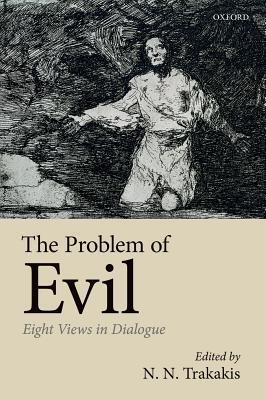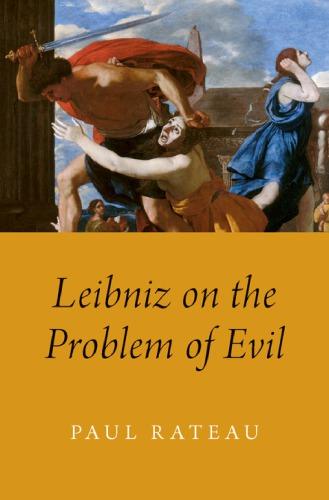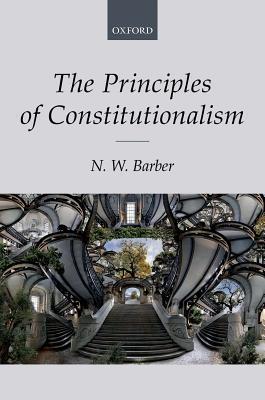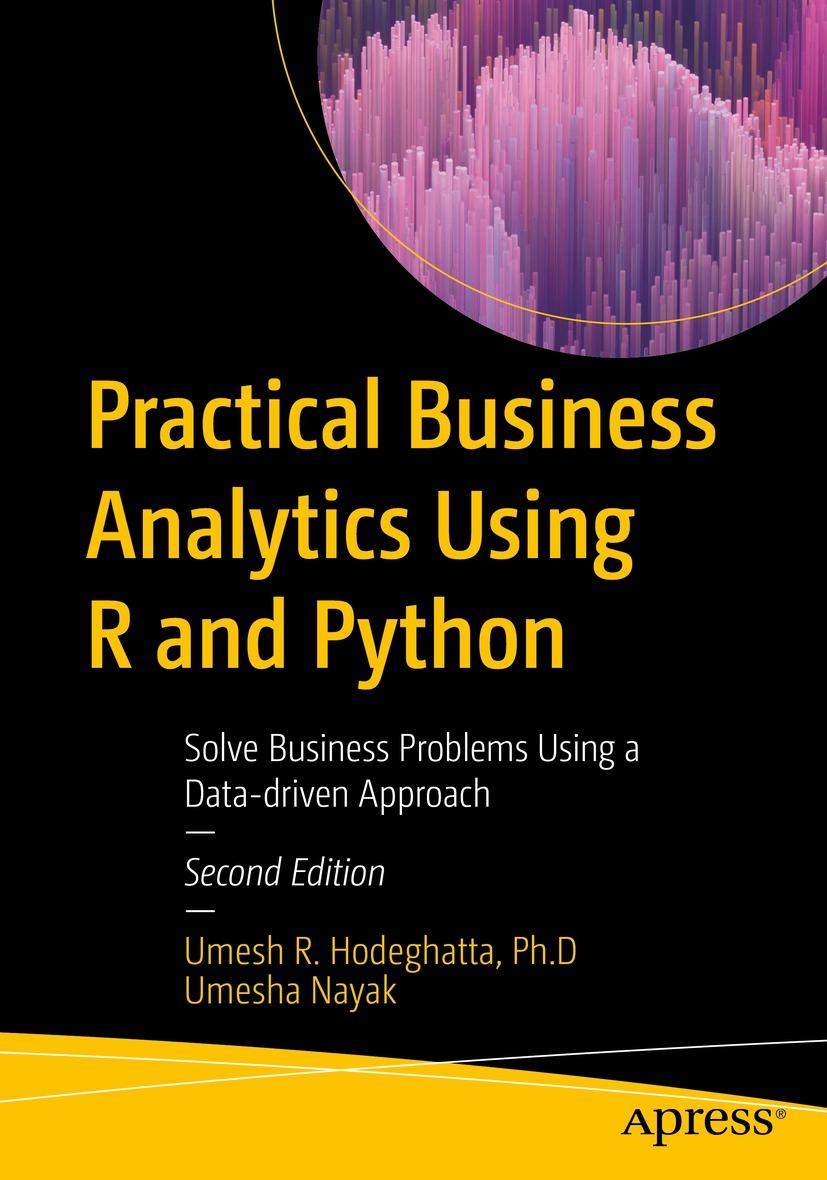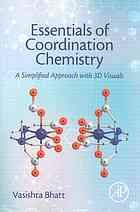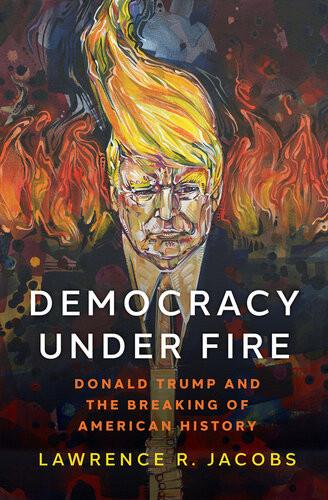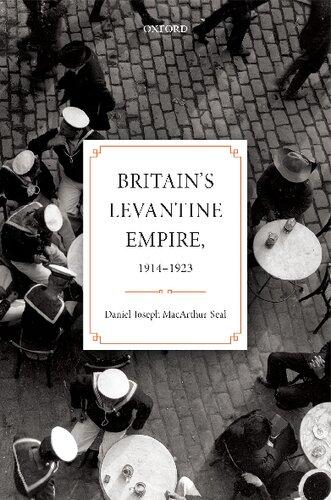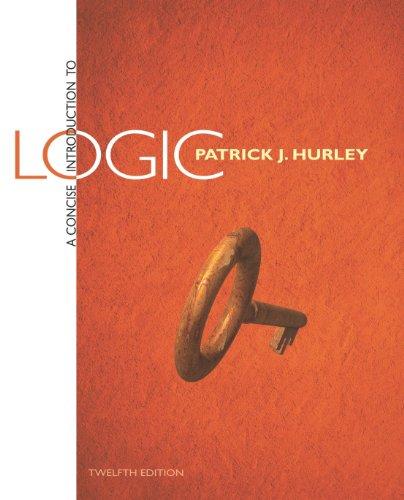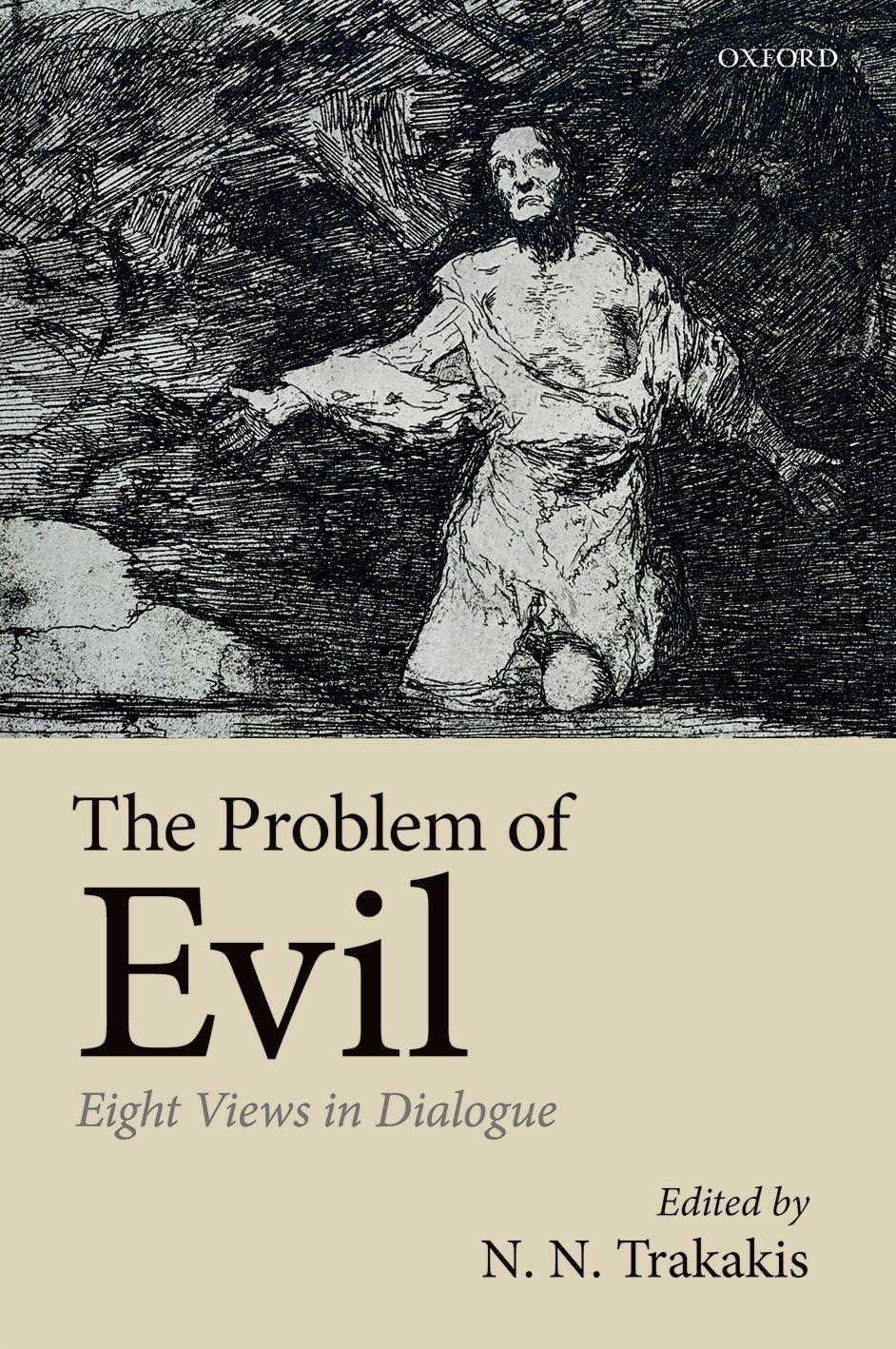Introduction
1. The State of Play: The Problem of Evil Today
The ‘problem of evil’—whether conceived broadly as the challenge of reconciling evil and imperfection with a commitment to ultimate justice, goodness, or harmony in the universe, or more narrowly in (say) theistic terms as the problem of reconciling the existence of an absolutely perfect being with the existence of sin and suffering—has a long and venerable history, exercising some of the finest minds from ancient to modern times. However, as will be discussed below, in recent philosophy of religion the debate seems to have reached a stalemate, where opposing camps rehearse tired and familiar lines of argument that remain singularly unconvincing to one another, giving the entire debate the character of what Imre Lakatos called a ‘degenerating research program’. In reaction to this, signs have begun to emerge that the problem of evil and the discipline at large are on the cusp of a breakthrough that promises to bring to the forefront a series of imaginative, suggestive, and innovative, though unfortunately neglected, approaches to the nature of divinity and its relationship to evil. The present collection of dialogical essays is put forward as a contribution to this renewal. Here I will outline two ways in which this nascent movement is manifesting itself in work on the problem of evil: metaphysically, and metaphilosophically. But before I do so, it will help to say something about the status quaestionis, specifically about the standard ways in which the problem of evil is understood and answered in contemporary philosophical discussions within analytic (Anglo-American) philosophy of religion.
To begin with, the standard approach conceives of God in a very particular way—call it Standard Theism (ST). ST is taken to accurately, albeit not exhaustively, reflect the variety of monotheism that is widely shared by Judaism, Christianity, and Islam. Specifically, ST holds that there exists just one God, that this God is a person or person-like, and that whatever else God is like God must be a proper object of worship (or object of ‘ultimate concern’, in Paul Tillich’s phrase). But if God is to be worthy of worship and unconditional commitment, it is arguably the case that God must be perfect, where to be perfect is to be the greatest being possible or, to borrow Anselm’s well-known phrase, the being than which none greater can be conceived. This minimal conception of divinity forms only the starting point in what has come to be known as ‘perfect being theology’ (Morris 1987, 1991; Rogers 2000). On this view, one begins with the idea of
God as maximally great or absolutely perfect, and then from this conception of deity one deduces all of God’s core or essential attributes—i.e., those attributes which are constitutive of God’s nature, so that he could not at the same time exist and lack any of these attributes. What these ‘great-making’ attributes are, or how precisely they are to be understood, remains open to debate, but a consensus has developed that God, as an absolutely perfect being, would possess some or all of the following properties as essential or intrinsic to his nature and being: omnipotence (God has the capacity to bring about any state of affairs that is logically possible in itself as well as logically consistent with his other essential attributes), omniscience (God knows all truths or knows all that it is logically possible to know), perfect goodness (God is the source of moral norms, or always acts in complete accordance with moral norms), aseity (God is ontologically independent, for he does not depend either for his existence or for his characteristics on anything outside himself), incorporeality (God has no body, he is a non-physical spirit), eternity (God is timeless, or is everlasting in having infinite temporal duration), omnipresence (God is wholly present in all space and time), and perfectly free (either in the sense that nothing outside God can determine his actions, or in the sense that it is always within his power not to do what he does). ST typically adds that God is the sole creator and sustainer of the world, though this is an attribute God is said to possess only contingently (given that he was free not to create a world).
The next stage in the standard approach to the problem of evil is to define this problem as a certain kind of challenge to ST: evil is conceptualized as a problem insofar as it casts doubt on, or undermines belief in, ST in specific ways. To formulate the problem of evil in this fashion is already to express it as a primarily intellectual and theoretical matter, as distinct from an experiential or existential concern. Accordingly, a distinction is now commonly made between two forms of the problem of evil, only one of which is taken to be the sole or principal concern of the professional philosopher. Firstly, there is the experiential problem of evil. Although variously interpreted, this form of the problem speaks to the practical and personal difficulties that issue from our knowledge and experience of suffering and evil. Such difficulties may consist in the concrete challenges of working, from within a religious community, to combat and eradicate injustice and inequality in one’s society; or they may be conceived more personally as the difficulty of adopting or maintaining an attitude of love and trust towards God when confronted by evil that is deeply perplexing and disturbing. Alvin Plantinga expresses this latter predicament well:
The theist may find a religious problem in evil; in the presence of his own suffering or that of someone near to him he may find it difficult to maintain what he takes to be the proper attitude towards God. Faced with great personal suffering or misfortune, he may be tempted to rebel against God, to shake his fist in God’s face, or even to give up belief in God altogether Such a problem calls, not for philosophical enlightenment, but for pastoral care.
(1977: 63–4, emphasis in original)
Secondly, and by contrast, there is the theoretical problem of evil, which is the purely intellectual exercise of determining what impact, if any, the existence of evil has on the
truth-value or epistemic status of belief in ST. It is this latter version of the problem of evil that philosophers of religion address, to the exclusion of the practical problem, which they regard as the province of priests, social workers, and health professionals.
The theoretical problem is further subdivided into two broad categories: the logical (or deductive, a priori) problem of evil, and the evidential (or inductive, a posteriori) problem of evil. The logical problem consists in removing an alleged logical inconsistency between certain claims made by ST and certain claims made about evil (e.g., that the existence of the God of ST is logically incompatible with the existence of certain kinds of evil). The evidential problem, on the other hand, takes it as given that the question of logical consistency has been or can be settled, and focuses instead on relations of evidential support, probability, and plausibility: the question here is whether the existence of evil, although logically consistent with the existence of God, counts against the truth of ST insofar as evil lowers the probability that ST is true.
Although some, led by the Australian pair J. L. Mackie (1955) and H. J. McCloskey (1960, 1974), boldly took on the logical problem of evil and sought to demonstrate the comparatively strong thesis that God and evil cannot possibly co-exist, it has now been supposed for some time that such attempts are unlikely to succeed, or at least that they fail to get to the heart of the difficulty that constitutes the problem of evil. This is a difficulty that relates to our ability to explain and make sense of our world, as opposed to formal questions of internal or logical consistency. One of the major turning points that led philosophers of religion to make the transition from the logical to the evidential problem was William Rowe’s (1979) seminal defence of atheism on the basis of an intuitively appealing argument that was crucially predicated on the inductive step that, given the countless instances of apparently pointless suffering found in the world, it is highly likely that at least some of these are in fact instances of pointless suffering.
As attention shifted to the evidential problem, two theistic responses took up much of the discussion. One response involved the construction of theodicies, this being the project of vindicating the justice or goodness of God by offering plausible explanations as to why God allows evil to abound in his creation. A multitude of theodicies have been developed, from John Hick’s (1966) ‘soul-making’ theory (where suffering and setbacks are viewed as necessary for the development of virtue and character), to theodicies that make appeal to the value of human free will, and theodicies that take at least certain kinds of ‘evil’ (e.g., natural disasters) that befall humans and animals as the unavoidable by-product of the outworking of the natural laws governing God’s creation. Just as theodicies are legion, so too are criticisms of them (paralleling the ‘proofs’ of God’s existence). One could question, for example, whether the value of free will is great enough to offset such terrible evils as war, genocide, and sexual abuse. In the face of such criticisms, the discussion gradually moved towards a different answer to the problem of evil, one that has come to be known as skeptical theism. This is the view that the limitations of the human mind are such that we are in no position to be able to discern God’s reasons for permitting evil—and hence, the fact that we cannot identify such reasons should not surprise us and should not count against the truth of ST. As one of the original proponents of this position, Alvin Plantinga, has asked, in
rhetorical fashion: “Why suppose that if God does have a reason for permitting evil, the theist would be the first to know?” (1977: 10, emphasis in original). Despite an initial degree of plausibility, the skeptical theist view has often struck critics as a last-ditch attempt to save face. Furthermore, skeptical theism has been criticized as opening the door to more radical and therefore more troublesome forms of skepticism (e.g., Almeida and Oppy 2003, Dougherty and McBrayer 2014).
In looking back over this debate, it can easily seem that the discussion has not progressed far since Rowe’s 1979 paper. Some defenders of ST continue to attempt to cover up lacunae in traditional theodicies, while an increasing number have given up such attempts, preferring instead to simply defer to the inscrutability of God’s ways. Opponents of ST, on the other hand, remain unconvinced by such appeals to the providential plans of God, whether these plans are knowable by us or not. Admittedly, deep disagreement of this sort is a common feature of philosophical debate, and it does not necessarily evince a lack of progress or a permanent impasse. Nonetheless, a mounting sense of frustration has become discernible, both within and beyond the philosophy of religion, over the current state of the debate. Michael Levine (2015: 340), for example, has noted that “instead of progress, insight or innovation, there has been backsliding, repetition, and obfuscation.” Levine pessimistically concludes:
Evil remains religiously and existentially problematic. For the religious, it should at times test faith along with an understanding of scripture. As an intellectual problem, however, it has been exhausted and resolved. Reiteration after reiteration; old wine in still old or slightly newer bottles, does not constitute philosophical advance. Become a student of the problem of evil if you must, but all you will find are anachronisms, alongside a new generation of apologists digging in their heels. (353)
But even if, as Levine with some plausibility contends, the discussion has become petrified into a select number of entrenched and defensive strategies, this need not lead us to conclude that the problem of evil is now ‘dead’, but might instead compel us to creatively rethink and redirect the discussion. We could, indeed, come to think the time ripe for a wholesale reconsideration of the problem of evil, where this involves reviewing, if not overthrowing, the parameters and presuppositions that often constrain the debates. Two ways in which this might be effected, as suggested also by contributors to this volume, will briefly be outlined.
2. Opening I: Reconceptualizing Divinity
The first possibility, or way of ‘opening’ up the debate around the problem of evil to new or neglected ways of thinking, has been foreshadowed by another recent Oxford University Press volume in philosophy of religion: Andrei Buckareff and Yujin Nagasawa’s edited collection, Alternative Concepts of God (2016). Buckareff and Nagasawa have commendably assembled a series of fascinating explorations of alternatives to classical theism “in the pursuit,” as they put it, “of a more global perspective in the philosophy of
religion.” They immediately add: “If we go global, we quickly discover that there are conceptions of divine or ultimate reality developed in various cultures that differ in significant ways from the received view we get from orthodox theology in the Abrahamic religions.” (4) Buckareff and Nagasawa therefore invited a diverse range of philosophers of religion to present and defend alternatives to the Abrahamic orthodoxy, most of which turn out to be versions of ‘pantheism’ (the view, roughly stated, that the universe and God are in some special sense identical rather than distinct) or ‘panentheism’ (the view, again roughly stated, that God is immanent within all creation while at the same time transcending the physical world). These and other alternatives to standard theism are useful not only in bridging ingrained divides between Western and Eastern religious thought, but also in shedding light on the strengths and weakness of competing conceptions of divinity (or ultimate reality)—particularly with respect to the ‘religious adequacy’ of these conceptions. However ‘religious adequacy’ is to be construed, one criterion that is relatively uncontroversial concerns the capacity of a way of thinking about divinity to ‘handle’, or even ‘resolve’, the problem of evil. It is common enough to find religious studies scholars, theologians, and historians of philosophy taking a keen interest in a variety of conceptions of the divine beyond standard theism, and also examining the consequences these conceptions have for the problem of evil. It has become less common for philosophers of religion to undertake such work, despite the undeniable benefits their distinctive tools and methods (e.g., logical rigour, conceptual and phenomenological analysis) could bring to the discussion. Some contributors to Alternative Concepts of God make a start in this direction, recognizing the problem of evil as a significant desideratum for conceptualizing divinity. Nagasawa, for one, considers a version of panentheism (what he dubs ‘modal panentheism’: God as the totality of all possible worlds, all of which are as real as the actual world) but finds that it succumbs to a version of the problem of evil even more troublesome than that faced by traditional theism. John Bishop and Ken Perszyk, in their essay in the same volume, expand upon this approach to trace the ways in which varying concepts of God generate varying problems of evil.
Bishop (1993, 1998, 2007) has been a longstanding critic of the traditional theistic model of God (or “the omniGod,” as he calls it), in large part because of the intractable difficulties, as he sees them, that the problem of evil creates for such a model (see also Bishop and Perszyk 2016). The alternative he has sought falls within a position that is garnering increasing attention—‘naturalist theism’. On this view, the natural world is all there is, and religious meaning and value are to be found solely in nature or some aspect of the natural order, thus rendering redundant any supernatural being, power, or principle. A leading advocate of this position in theological circles was the late Gordon Kaufman of Harvard Divinity School, who labelled his outlook “biohistorical naturalism” and who reconceived God as the “serendipitous creativity” of a cosmos that evolves and changes in surprising and unpredictable ways (Kaufman 2004). Similar voices can now be heard in the philosophy of religion. Mark Johnston (2009), for example, has sought to purge theism of the idolatry of supernaturalism, and replace it
with what he calls ‘process panentheism’, where God as the ‘Highest One’ (the One most worthy of worship) is defined as the wholly immanent self-disclosing process of the outpouring of Existence Itself in ordinary existents, a process that is manifested in the natural realm alone.1
Bishop, likewise, holds that a naturalist ontology suffices for developing a religiously viable conception of who or what God is, of what (as he likes to say) it is that fills “the God-role”—the role of being worthy of a special kind of practical commitment involving trust, worship, and obedience. To specify what fills the God-role, Bishop (2007) turns, firstly, to the Trinitarian insight that the Divine Being belongs to the category of relation, not that of substance. Bishop thus presses for a shift away from the traditional idea of God as supreme individual agent to the idea of God as supreme community, constituted by persons-in-loving-relationship. This leads to a second, Christological strand in Bishop’s model, where he takes (metaphysically) seriously the New Testament claim that God is love (1 John 4:16). This is not construed to mean that God is identical with the universal, Love, but that God’s relational being is instantiated, though not exhausted, by genuinely loving interpersonal relations within the world. In recent collaborative work with Ken Perszyk (2016), Bishop has added a ‘euteleological’ dimension to his account, where the standard view of God as supernatural producer of the world is replaced by the idea that the universe’s being God’s creation amounts to its being inherently directed upon the supreme good as its telos (goal, purpose), and existing only because that telos is realized within it. The result is a model of God that is thoroughly naturalistic, devoid of any supernatural agency or entity either within or beyond the natural world.
Reconfiguring divinity along these and other lines may not entirely remove the problem of evil, as Bishop acknowledges. Indeed, Bishop and Perszyk (2016: 124) concede that euteleological theism will seem improbable given the nature and extent of evil in the universe, at least if no additional theological resources (such as those provided by Christian revelation) are brought in. For Bishop and Perszyk, however, any conception of the divine “worth its salt” in dealing with what they call ‘the existential problem of evil’—the problem of how to live virtuously and flourish, or find ‘salvation’, in a world seemingly unfavourable to such ideals—will almost certainly introduce a significant intellectual problem of evil (2016: 115). There may be some doubt about that (given that there may be adequate non-moral conceptions of God that dissolve, rather than needing to resolve, the problem of evil), but what is worth highlighting is the way in which the alternative conceptions of divinity developed by Johnston, Bishop, and other non-standard theists help us to see, if not answer, the problem of evil in innovative and insightful ways.
1 It might be noted that such views are ‘naturalist’ just in the sense that they reject a separate supernatural realm: they are not, of course, a form of ‘scientific’ naturalism that identifies reality with the way it is depicted on our best scientific theories.
It is not even mandatory to believe in, let alone display resolute commitment to, these alternative Gods. Rather, they might be postulated in speculative fashion, in the manner of Whitehead’s ‘adventures of ideas’. It is to this that I now turn.2
3. Opening II: Renewing the Discipline
A second ‘opening’ has been suggested by yet another new Oxford University Press anthology, this time edited by Paul Draper and J.L. Schellenberg, entitled Renewing Philosophy of Religion: Exploratory Essays. The essays collected by Draper and Schellenberg address the previous concern of seeking to expand the focus of contemporary philosophy of religion beyond the bounds of Western theistic religions, even beyond traditional forms of religion altogether. But there is a second initiative in the Draper/Schellenberg volume that I want to pick up on—what they call, in their introductory essay, questions of ‘standpoint’: “that is, with how philosophers of religion are placed, in terms of such things as commitments brought to inquiry and assumptions about proper aims and procedures, as they address whatever particular issue becomes their focus.” (7; emphasis in original)
The question of placement, in terms of religious commitments and methodological presuppositions, has arisen because of a decisive but problematic turn taken recently in philosophy of religion. This is a turn towards relatively traditional or conservative forms of religion and theology, and interestingly it has become evident in both analytic and Continental schools of philosophy of religion. Amongst Continental philosophers, suspicions were raised early, with Dominique Janicaud in a 1991 report objecting to what he called ‘the theological turn in phenomenology’ on the grounds that: “The dice are loaded and choices made; faith rises majestically in the background.” (2000: 27)3
Analytic philosophers, by contrast, have only just begun to raise concerns, against the background of the dominance over the last few decades of a new generation of (mainly mainstream) Christian philosophers, led in large part by the trailblazing efforts of (among others) Alvin Plantinga, Richard Swinburne, Peter van Inwagen, Marilyn McCord Adams, and William Lane Craig. Their goal has been to rejuvenate the field after (in their eyes) it lay fallow in the wilderness of twentieth-century positivism, and to do so by developing a distinctly and unashamedly Christian form of philosophy.
There is little doubt that ‘analytic theists’ have brought a newfound rigour, depth, and indeed sense of excitement to a formerly flailing discipline. At the same time,
2 Rethinking the problem of evil of course requires much more than rethinking received ideas about God. For one thing, our understanding of evil requires further thought, so as to take in the social, structural, and political dimensions of evil delineated by Tilley and Clack in this volume. More broadly still, a holistic approach, of the sort advocated by Oppy with his emphasis on the comparison and evaluation of entire ‘worldviews, would be helpful in seeing (what I have been calling) Standard Theism as only one option amongst many, even within the theistic camp.
3 Janicaud was referring in this instance to the work of Levinas, though Janicaud was equally critical of other prominent phenomenologists in France, such as Michel Henry, Jean-Luc Marion, Jean-Yves Lacoste, and Jean-Louis Chrétien.
questions are now being asked about the serious side-effects this religious turn has introduced. Paul Draper has done much to highlight this, not only in the volume he co-edited with Schellenberg, but also in an earlier paper co-authored with Ryan Nichols (Draper and Nichols 2013). Draper and Nichols’ ‘diagnostic hypothesis’, as they put it, is that the discipline’s poor health can be attributed to “a variety of cognitive biases operating at the nonconscious level, combined with an unhealthy dose of group influence.” (424) These biases, according to Draper and Nichols, manifest themselves in at least four ways: (i) partisanship, or following the ‘party’ rather than the argument wherever it leads; (ii) polemics, or an adversarial and combative approach to philosophy; (iii) focus narrowly placed on mainstream Abrahamic traditions; and (iv) religious constraints (e.g., the teachings of a sacred text or a church), which limit or predetermine the outcomes of philosophical discussions. These symptoms, unfortunately, are not difficult to detect in recent work on the problem of evil, as Draper and Nichols observe:
A philosopher of religion who is a theist, for example, could consistently admit (and even defend the view) that horrendous evil is strong evidence against theism, so long as they think, for instance, that this evidence is outweighed by even stronger evidence (whether inferential or noninferential) on the other side. Yet such admissions almost never occur. (421)
To wake philosophy of religion from its dogmatic slumber, what is required is a renewed appreciation of the kind of thinking that has traditionally been regarded as integral to philosophy—a thinking that is sustained and searching, restless, and even endless in its explorations, but without knowing where such wondering and meandering will lead, thus being responsive to the unforeseen and unexpected and so not prejudicing the outcome. Commitment, even religious commitment, is not thereby ruled out, as long as it promotes a questioning frame of mind, and accords value to skepticism and doubt. What the poet John Keats called ‘negative capability’ has a place in philosophy as much as in literature:
It struck me, what quality went to form a Man of Achievement especially in Literature & which Shakespeare possessed so enormously – I mean Negative Capability, that is when a man is capable of being in uncertainties, Mysteries, doubts, without any irritable reaching after fact & reason
(Keats 1958: 193)
This capability for lingering in doubt is challenging and confronting to many, especially those with strongly held religious convictions. But philosophy is nothing if not challenging and confronting. Draper and Nichols, towards the end of their paper, make a series of recommendations as to how the discipline could be improved in light of their earlier diagnosis. Their final recommendation, which they say “is the hardest of all to follow,” is to
. . . make a conscious decision to accept genuine risk. True inquiry requires risk. This is why philosophical inquiry is aided by doubt . . . Apologetics . . . is very safe insofar as pursuing it is very unlikely to result in the apologist rejecting any of the central doctrines of the religious
community he or she serves. Philosophy should be riskier—the philosopher of religion must be prepared to abandon cherished beliefs. But with that risk comes [sic] greater opportunities for growth and discovery, and for freeing oneself from service to inflexible orthodoxy. (441–2)
In retrieving the questing and adventurous nature of philosophical inquiry, philosophers of religion will not only broaden the current debate around the problem of evil with a greater plurality of perspectives, but will also help drive the discussion away from conventional towards more creative paths. Beverley Clack, a contributor to this volume, has in earlier work defended a similar, ‘aporetic’ methodology: borrowing from the psychoanalytic model of therapy as a ‘pathless path’ or aporia, Clack (2007) envisages an approach to the problem of evil that sees it as a journey with no predetermined goal or end-point, “a journey where the road is strange and unknown.” (207) This may involve, as happens in her own philosophical work, drawing upon the literary and creative arts for insights into evil and suffering (something rarely done in contemporary discussions), because “the best art challenges, forcing the viewer/reader to consider again the way in which they habitually see the world.” (207–8) But it may also include creatively constructing speculative theories, experimenting with diverse myths, models, and metaphors of (e.g.) God and world, without necessarily subscribing to everything one puts to paper, but performing a kind of epochē or suspension of belief that gives one licence to imagine and explore. And so alongside Draper and Schellenberg’s call for wider focus and plural standpoints, also vital is the question of style: ways of writing philosophy that go beyond the standard academic template, and which might for example be slow, meditative, open-ended, and essayistic (see Walker 2016), or (as with the present volume) dialogical and interactive in form.
4. The Dialogues
Despite the current preference in academic philosophy for the journal paper or the book-length treatise, the genre of the dialogue is beginning to make inroads and is proving popular with specialists and non-specialists alike. But in contrast with the philosophical dialogues of old, as represented by the sole-authored works of Plato, Berkeley, and Hume, a spate of more genuinely interactive dialogues has appeared, involving exchanges between various philosophers, each defending a distinct position around a vexing problem in philosophy (e.g., free will: Fischer et al. 2007) or philosophical theology (e.g., divine providence: Helseth et al. 2011). In an attempt to rejuvenate the discussion on the problem of evil, the dialogical form was selected to bring eight philosophers of religion together in critical but also considerate conversation. Each of the eight came to the discussion table with a history of extensive reflection and often influential publications on the problem of evil, and each came equipped with an interestingly different orientation and outlook, thus helping to generate a broad spectrum of views.
To make the dialogue process manageable, participants were divided into two groups, of four individuals each. The first group consists of John Bishop (naturalistic theism), Graham Oppy (secular naturalism), Eleonore Stump (Thomism), and N. N. Trakakis (anti-theodicy and idealism); the second group is made up of Beverley Clack (feminism), Andrew Gleeson (Wittgensteinianism), Yujin Nagasawa (standard Anselmian theism), and Terrence Tilley (praxis-based Christian theology). The parentheses are merely indicative of the broad frameworks the participants tended to work within, even if the frameworks themselves were not always at the forefront of their discussions or concerns. The basis of the pairings, however, was to enable creative and constructive discussion across these divergent schools of thought, while preserving enough commonality to avoid extreme clashes and misunderstandings. This, to be sure, is a fine balancing act, and it may not be feasible or even desirable to always avoid the kinds of disagreements and conflicts that are typical of philosophical disputes.
The dialogues began with each author preparing a ‘Position Statement’ providing a detailed overview of the perspective they favour on the problem of evil. These position papers were presented in abbreviated form at a workshop held at the Australian Catholic University, Melbourne campus, on 14–15 July, 2014.4 During the workshop, participants were also invited to respond to each of the position papers (from their own group) and to field questions from the audience. These initial replies to the Position Statements were subsequently revised and included herein as ‘Responses’. Finally, the Responses were circulated to the relevant recipients, so that authors could prepare a second round of replies, commenting upon each of the initial Responses from their group. (Each of these second responses has been collected under the heading of ‘Reply to . . . ’.)
It is hoped that the essays and exchanges that follow will advance the precedent recently established by other philosophers of religion seeking to push the discipline in new and more promising directions. Such reorientation and renewal is particularly important with the problem of evil, where seemingly fruitless and interminable debates (over theodicy and ‘skeptical theism’, for example) have raised the need for a consideration of alternative, if not daring and ‘riskier’, ways of conceiving God’s relationship to evil. At a time when God and violence, religion and extremism, are inextricably linked in the minds and politics of many, the need for a rigorous and nuanced understanding of divinity and evil that opens, or re-opens, lines of inquiry that have been unjustly dismissed or neglected is perhaps as great as it has ever been.5
References
Almeida, Michael J. and Graham Oppy. (2003). “Sceptical Theism and Evidential Arguments from Evil,” Australasian Journal of Philosophy 81: 496–516. Bishop, John. (1993). “Evil and the Concept of God,” Philosophical Papers 22: 1–15.
4 The only exception was Yujin Nagasawa, who did not take part in the workshop, as he had yet to be enlisted to this project.
5 I would like to thank the contributors to this volume for their feedback on an earlier draft of this Introduction.
Bishop, John. (1998). “Can There Be Alternative Concepts of God?” Noûs 32: 174–88.
Bishop, John. (2007). “How a Modest Fideism May Constrain Theistic Commitments,” Philosophia 35: 387–402.
Bishop, John and Ken Perszyk. (2016). “Concepts of God and Problems of Evil,” in Buckareff and Nagasawa, 106–27.
Buckareff, Andrei A. and Yujin Nagasawa (eds). (2016). Alternative Concepts of God: Essays on the Metaphysics of the Divine. Oxford: Oxford University Press.
Clack, Beverley. (2007). “Distortion, Dishonesty and the Problem of Evil”, in Hendrik M. Vroom (ed.), Wrestling with God and with Evil: Philosophical Reflections. Amsterdam: Rodopi, 197–215.
Dougherty, Trent and Justin P. McBrayer (eds). (2014). Skeptical Theism: New Essays. Oxford: Oxford University Press.
Draper, Paul and Ryan Nichols. (2013). “Diagnosing Bias,” Monist 96: 422–48.
Draper, Paul and J. L. Schellenberg (eds). (2017). Renewing Philosophy of Religion: Exploratory Essays. Oxford: Oxford University Press.
Fischer, John Martin et al. (2007). Four Views on Free Will. Malden, MA: Blackwell.
Helseth, Paul Kjoss et al. (2011). Four Views on Divine Providence. Grand Rapids, MI: Zondervan. Hick, John. (1966). Evil and the God of Love, 1st ed. London: Macmillan.
Janicaud, Dominique. (2000). “The Theological Turn of French Phenomenology,” trans. Bernard G. Prusak. In Dominique Janicaud et al., Phenomenology and the ‘Theological Turn’: The French Debate. New York: Fordham University Press, 16–103.
Johnston, Mark. (2009). Saving God: Religion after Idolatry. Princeton, NJ: Princeton University Press.
Kaufman, Gordon. (2004). In the Beginning Creativity. Minneapolis, MN: Augsburg Fortress. Keats, John. (1958). The Letters of John Keats, vol. 1, edited by Hyder Edward Rollins. Cambridge, MA: Harvard University Press.
Levine, Michael P. (2015). “Religion and Suffering,” in Graham Oppy (ed.), The Routledge Handbook of Contemporary Philosophy of Religion. London: Routledge, 340–55.
Mackie, J. L. (1955). “Evil and Omnipotence,” Mind 64: 200–12.
McCloskey, H. J. (1960). “God and Evil,” Philosophical Quarterly 10: 97–114.
McCloskey, H. J. (1974). God and Evil. The Hague: Martinus Nijhoff.
Morris, Thomas V. (1987). Anselmian Explorations. Notre Dame, IN: University of Notre Dame Press.
Morris, Thomas V. (1991). Our Idea of God: An Introduction to Philosophical Theology. Downers Grove, IL: InterVarsity Press.
Plantinga, Alvin. (1977). God, Freedom, and Evil. Grand Rapids, MI: Eerdmans.
Rogers, Katherin A. (2000). Perfect Being Theology. Edinburgh: Edinburgh University Press.
Rowe, William. (1979). “The Problem of Evil and Some Varieties of Atheism,” American Philosophical Quarterly 16: 335–41.
Walker, Michelle Boulous. (2016). Slow Philosophy: Reading Against the Institution. London: Bloomsbury.
1 The Problem of Suffering A Thomistic Approach
Eleonore Stump
The Nature of Suffering
Only the most naïve or tendentious among us would deny the extent and intensity of suffering in the world. Can one hold, consistently with the common view, that there is an omniscient, omnipotent, perfectly good God? Some philosophers who were influential in the earlier twentieth-century discussion of the problem of evil answered this question in the negative and went so far as to claim that the existence of evil is logically incompatible with the existence of God. But, as the subsequent philosophical discussion of the problem of evil has made clear, such a claim is much harder to support than its proponents originally supposed. The propositions:
(1) There is suffering in the world and
(2) There is an omniscient, omnipotent, perfectly good God are not by themselves logically incompatible. At the very least, for a sound argument from evil against the existence of God, we need to add this premise:
(3) There is no morally sufficient reason for an omniscient, omnipotent, perfectly good God to allow suffering in the world. But this premise is eminently debatable. In fact, a theodicy can be thought of as an attempt to show this premise false by providing a morally sufficient reason for God’s allowing suffering.
The medieval tradition from Augustine onwards took God’s providential governing of the world to be perplexing in certain respects, but it certainly supposed itself to have a religiously deep and morally satisfying account of God’s reasons for allowing suffering. It is clear that there is a long tradition of philosophically sophisticated, biblically based theodicies in the West—and, of course, an equally long tradition of counter-arguments designed to rebut them. Within the medieval period, there is, naturally, a divergence of philosophical and theological opinions. Although the medieval period does not speak
with one voice, nonetheless, as regards theodicy, there is remarkable similarity among the views of such medievals as Augustine, Gregory the Great, Saadya Gaon, Aquinas, and others. In this chapter, I want to present the basic outlines of this medieval theodicy. Since Aquinas is the philosopher I know best among the medievals, I will present his thought as a representative medieval theodicy and a representative medieval account of God’s reasons for allowing evil.
As regards the problem of evil, what is in need of justification is God’s allowing the suffering of sentient creatures. In this chapter, I will consider the suffering not of all sentient creatures, but only of adult human beings who are mentally fully functional.1 Considering the suffering of animals, infants, or adult human beings who are not fully functional mentally requires looking closely at the nature of their suffering; and this, in turn, requires careful consideration of the kind of subjective experience of which they are capable. But such issues are complicated, and considerations of space rule out addressing them at length here.2 It seems to me not easy to rule out the possibility that the theodicy I discuss in this chapter might be extended to other sentient creatures.3 Nonetheless, because it is not possible to do everything in one chapter, the discussion here is confined to the suffering of mentally fully functional adult human beings. It is important to reflect on the problem. What is suffering? How are we to understand it? It cannot be adequately glossed just as pain. On the contrary, pain is neither necessary nor sufficient for human suffering. There can be great suffering in a human life even where there is no physical or psychological pain. There are, for example, nonpainful neurological syndromes which render a patient unable to function on his or her own and also unable to be unhappy over that fact. On the other hand, there is also the physical pain of a long-distance runner who rejoices in his aches and pains, and who certainly would not think of his running as a suffering for him. So suffering is not to be equated with pain.
A better way to think about suffering is as a function of what a person cares about. Every human person has some care about what kind of person she is and about flourishing as that kind of person. There is an objective fact of the matter about what will make a human person flourish, however. And so there is an objective element in what a person cares about, too. It has to do with her being what she ought to be, in a sense which encompasses all her well-being, not just her moral good. Consequently, part of what it is for a human being to suffer is for her to be kept, to one degree or another, from flourishing, from being what she ought to be.
1 I do not have a precise definition of what it is for an adult human being to be mentally fully functional. For the purposes of this project, I will assume only a rough rule of thumb: if an adult human being is appropriately held morally responsible for his actions and is appropriately the subject of the reactive attitudes, then he is within the bounds of the mentally fully functional.
2 An indicator of the complexity of the issue even for human adults who are not mentally fully functional is the recent study showing neurological processing of semantic information on command by a patient who had been relegated to persistent vegetative status by external indicators (Owen et al. 2006).
3 Because the heart of the theodicy at issue here has to do with interpersonal relationships, the development of this theodicy to sentient creatures other than mentally fully functional adult human beings depends on the extent to which these other creatures can participate in interpersonal relationships. For a suggestive essay on this subject, see Smuts (2001).
On the other hand, what we care about has a subjective element too, which does not have to do with our flourishing. This subjective element is something to which a person is committed but which is not essential to his flourishing and which may not even be compatible with it.4 This is a matter of what we can call “the desires of the heart,” to adopt a phrase from the Psalmist. The desires of the heart are what a person loses when he is heartbroken. It is not easy to give a crisp formulation of the notion of the desires of the heart. Perhaps we can say that a person’s desire of the heart is a particular kind of commitment to a person or a project that matters greatly to him apart from his flourishing. If there is such a thing as a web of belief, with some beliefs peripheral and others central to a person’s set of beliefs, perhaps there is also a web of desire. A desire of a person’s heart is a desire which is at the centre of the web of desire for him. If he loses what he wants when his desire is at the centre of the web, then other things which he had wanted begin to lose their ability to attract him, because what he had most centrally wanted is gone.
And so we care not just about our own objective well-being. We care also about those things which are the desires of our hearts. Consequently, we can formulate the nature of suffering in terms of what we care about:
(S) A human being suffers when he is kept from being what he ought to be, or when he is kept from having the desires of his heart, or both.
When we consider what could justify God’s allowing suffering, this is the understanding of suffering that will be at issue.
The Central Question
As it is generally understood by philosophers and theologians, the question posed to religious belief by the problem of evil is whether there is a morally sufficient reason for God to allow evil. In what follows, I will call this ‘the central question’. In light of the preceding reflections regarding suffering, we can give the central question raised by the problem of evil a more specific formulation. If a person suffers when something undermines her being what she ought to be or having the desires of her heart or both, then a morally sufficient reason for allowing suffering must be something which somehow defeats the badness of suffering so understood.
We can therefore give the central question this preliminary formulation:
(C) Does God’s allowing the evil a human being suffers contribute to that person’s being able to be what she ought to be, or to her being able to have the desires of her heart; and is her suffering the best available means, in the circumstances,5 to achieve those ends?
4 Marilyn Adams (1999) makes a distinction which is at least related to the distinction I am after here. She says, “the value of a person’s life may be assessed from the inside (in relation to that person’s own goals, ideals, and choices) and from the outside (in relation to the aims, tastes, values, and preferences of others) . . . My notion is that for a person’s life to be a great good to him/her on the whole, the external point of view (even if it is God’s) is not sufficient.” (145)
5 The qualification ‘in the circumstances’ has to be included here because what constitutes the necessary or best possible means to an end depends on the context in which the means and end are situated. The
As I have proposed it, the central question obviously consists in two pairs of subsidiary questions, and it will be easier to handle the central question by considering the subsidiary questions one pair at a time. These two questions are the first pair:
(CA1) Does God’s allowing a person’s suffering contribute to her being able to be what she ought to be?6 and
(CA2) Is a person’s suffering the best available means, in the circumstances, for the sufferer to be able to be what she ought to be?
And these two questions are the second pair:
(C b1) Does God’s allowing a person’s suffering contribute to her being able to have the desires of her heart? and
(C b2) Is a person’s suffering the best available means, in the circumstances, for the sufferer to be able to have the desires of her heart?7
The Central Question and the Scale of Value
These questions, and the problem of evil in general, presuppose a scale of value in accordance with which the existence of suffering is judged at least prima facie inconsistent with the existence of a good God. And insofar as the problem of evil is an attack on the consistency of religious belief or the consistency of religious belief together with some uncontested empirical evidence, it is appropriate that the scale of value by which that consistency is judged be the scale of value embraced by the system of religious belief in question. It would make no difference to the argument over evil if it turned out, unsurprisingly enough, that the mix of religious beliefs with a scale of values
necessary or best possible means to harmony between a mother and her son is one thing for Gertrude and Hamlet while Hamlet’s father is still living and another entirely after she participates in his murder.
6 I put the question in this way, as distinct from asking whether a person whose suffering God has allowed is what she wants to be, to allow for free will. Insofar as any human person has free will, so that her will is in her own control, it is always possible for her not to be what she wants to be. That is because it is possible for a person to be divided within herself, so that whatever she is and wants to be, she is not what she wants to be with some other part of her conflicting desires and divided will. And to the extent to which her will is in her own control, its internal divisions will also be in her own control. So the central question is a question about whether God’s allowing suffering enables the sufferer to have a benefit in virtue of the suffering, not whether God’s allowing suffering automatically confers a benefit on the sufferer (although in virtue of conferring the ability to have a benefit, it automatically confers a benefit, to the extent to which the ability to have a benefit is itself a benefit). Therefore, the central question needs to be formulated in terms of the sufferer’s being able to be what she wants to be, not in terms of her being what she wants to be.
7 The phrase ‘to be able to’ has to be added because, since human beings have free will, God’s allowing suffering cannot be guaranteed to have only one particular effect on the sufferer.

